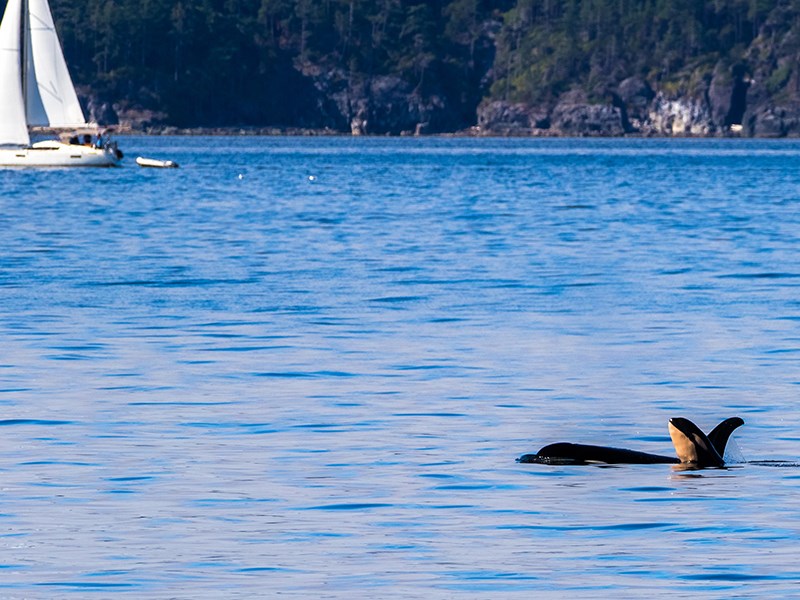Along the upper Sunshine Coast, catching a glimpse of a pod of orca or a humpback whale can be a total thrill. The opportunity to learn more about the marine mammals that travel our coastline takes place November 16 and 17 at Evergreen Theatre in Powell River Recreation Complex.
World of Whales 2018, hosted by Wild Ocean Whale Society (WOWS), features workshops and multimedia presentations open to residents of all ages, and much of it free of charge. It provides a great opportunity to learn from marine experts, according to WOWS founder Susan MacKay.
“It will be wonderful,” said Mackay. “It’s all to do with whales, marine mammals, all their interactions, the food chain, the whole bit.”
Presenters from Vancouver Aquarium Marine Mammal Rescue, Fisheries and Oceans Canada (DFO) and Hatfield Marine Science Center at Oregon State University will be in attendance. Friday’s daytime workshops will be aimed at students of all ages, while an evening presentation will be geared toward more advanced adult learners, said MacKay.
Saturday is a full-day event and requires preregistration and a $25 fee, which goes toward the cost of a catered lunch and insurance for the venue. WOWS has been a registered charity since 2013.
Saturday workshops will focus on whale identification and issues of safety and entanglement.
“We’re anticipating that DFO will show us the satellite tag we are supposed to have here in Powell River for attaching to humpbacks and entangled whales, and how they deploy it,” said MacKay.
WOWS is looking for volunteers to add to their list of people willing to stay with humpbacks and whales that are entangled until help can come.
The whale identification workshop will look at the different species found in the surrounding waters, including three different species of orca.
“It gets in-depth and looks at how to distinguish them,” said MacKay. “We are doing this through photographic identification markings as well as acoustics, because you can distinguish the different types of orca through their vocals.”
MacKay said WOWS wants to encourage and remind people to report their marine wildlife sightings so the group can map their locations and habits.
“People tend to think somebody else has already reported, but with orca, one person might see one orca and another person might see five in that same time period. Reporting helps us determine if it is a lone male, a family pod and possibly who the family pod is.”
Information provided directly to WOWS is made available to everyone, she added.
“If it goes to DFO and the aquarium it goes into a database that is only accessible by a few people,” said MacKay. “All of our information goes to the public. We want to ensure the public is aware and uses caution around these animals.”
For more information on WOWS or the workshops, go to wildoceanwhale.org.



